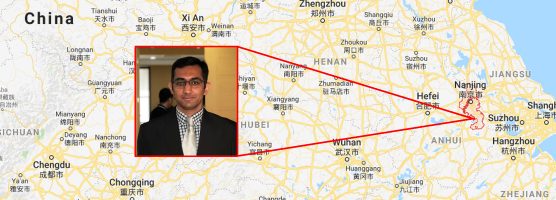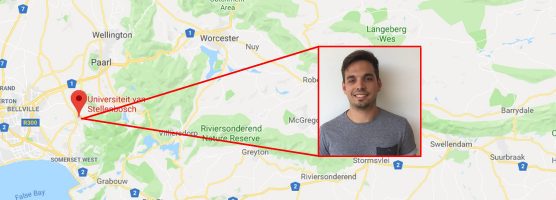Posted August 12th, 2019
New correspondent: Tomás Gómez Navarro from Valencia, Spain
Today our team could add another correspondent, Tomás Navarro. He’s an energy engineer at Unversitat Politècnica de València and passionate about research issues, that are related to climate change. Cool Down The Planet welcomes him, with all his experience in the field of developing sustainable energy, and we are happy that he’s very motivated to help us find suitable subjects to be featured in his country. Cool Down The Planet first asked him to answer some questions.
Hi Tomás, can you introduce yourself?
My name is Tomás Gómez Navarro, assistant-professor at Unversitat Politècnica de València in Spain, I’m an energy engineer, although my expertise is more in environmental assessment, and I teach at the Industrial Engineering School. My focus is on three research areas, related to each other, but somehow different:
- Environmental impacts of energy systems
- Fuel poverty
- Hybrid renewable energy systems .
Fighting global warming is an element that connects them all.
Do you already see the impact of climate change in Spain?
It is difficult to tell natural weather events from climate change driven weather events. But, there researchers say nowadays in Valencia we have more tropical nights than ever, around 80 a year, more days of heat estress, more days of high sea temperature and, in addition, rain patterns have changed and we are facing desertification more than ever. Furthermore, spring and autumn are ever shorter, and all that is affecting our agriculture, our water and energy consumption, etc. feedbacking our contribution to climate change.
What are your ambitions? How would you like to develop your future career?
Here’s the deal: I am obsessed with the act of increasing awareness and the teaching/presentation methodologies on renewable energy systems and sustainable development. I mean there is nothing in that topic not to like! My last year at work focused more on business development and interaction with clients, and that’s where the real challenge of convincing people to adopt sustainable development strategies and to take action and become more energy efficient really turns out to be. The money is there, the attitude is there. It is just that push that is required to close down that conviction loop, and that is I believe where we come into play. If we master that art of subject presentation of the most fundamental principles of sustainability that we care for so dearly, changing the world becomes a trivial matter. To answer your question, I am currently very interested in examining and exploring possible investment strategies and energy policies related to that topic.
What drives you to be ‘our man in Valencia’?
It would be very welcome to involve students and colleagues in each others specific subjects, on an international level. It’s about knowing ‘who does what’ and sharing your knowledge, that’s a real innovation. So I would like to engage my students and others in the running challenges, or even better: together working out a new next challenge. If we find a relevant issue, and the students are committed, and some colleagues of mine would help me, we will actually set up a new challenge.
So do you regard Cool Down The Planet as a useful and promising tool?
I must admit I knew very little about crowd engineering. Then, for a start, Cool Down The Planet has brought to me the idea of devoting crowd engineering to Global Warming challenges, and it has been an illumination. Definitely, the complexity/multidisciplinarity of the problems, the uncertainties about cause-effect issues, learning from others’ experience, etc. make crowd engineering a very promising tool for tackling all that. Besides, the prize-wise approach adds the thrill of competition that so much appeals to the students, and to some colleagues as well, actually. But, as I’ve said, I have no direct experience yet and I can not give examples only I see the potentiallity of Cool Down The Planet. I’ve found out crowd engineering has proven quite sucssesful in United States.

